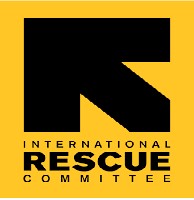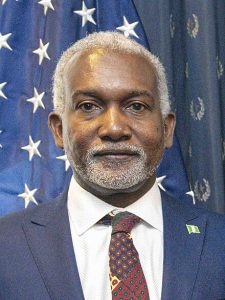Programme Director – Education Research in Conflict and Protracted Crisis (ERICC) at the International Rescue Committee (IRC)

The International Rescue Committee (IRC) responds to the world’s worst humanitarian crises and helps people to survive and rebuild their lives. Founded in 1933 at the request of Albert Einstein, the IRC offers lifesaving care and life-changing assistance to refugees forced to flee from war or disaster. At work today in over 40 countries and 22 U.S. cities, we restore safety, dignity and hope to millions who are uprooted and struggling to endure. The IRC leads the way from harm to home.
We are recruiting to fill the position below:
Job Title: Programme Director – Education Research in Conflict and Protracted Crisis (ERICC)
Requisition ID: req19072
Location: Abuja (FCT)
Sector: Research & Development
Employment Category: Fixed Term
Employment Type: Full-Time
Open to Expatriates: Not Applicable
Job Description
The IRC invests in research in humanitarian contexts to increase the effectiveness and efficiency of policies and practices in these settings. Our Research and Innovation Department works in partnership with our Education Technical Unit and Country Program teams to achieve these aims by:
- Generating robust and actionable evidence across crisis-affected contexts,
- Gathering and synthesizing the evidence base on what works, and
- Analyzing the cost efficiency and cost effectiveness of humanitarian programming
- The IRC aims to generate and share evidence on the most cost-effective models for designing and delivering quality, safe education.
Program Scope
- To date, a record number of people are displaced from their homes due to conflict and protracted crises. Two billion people live in countries affected by fragility, conflict and violence. Of the estimated 75 million children whose education is affected by conflict and protracted crises, nearly half of them – 37 million – are out of school at the primary and lower secondary level.
- It is hard to track how much those who are in school are learning, but the data we have indicates that they are learning far less than they could be as the quality of schooling is so low. With the average length of displacement now lasting 17 years, generations of children risk missing out on education and its long term benefit. Although there is growing international momentum and action to tackle this crisis, there is a critical lack of evidence on ‘what works’ for education in these contexts to ensure quality education for all.
- The lack of evidence impedes global efforts to delivery education programmes, especially those in conflict and crisis settings.
The Education Research in Conflict and Protracted Crisis (ERICC) is The UK’s Foreign, Commonwealth:
- & Development Office (FCDO) new, three year, £15 million research programme to carry out rigorous and operationally relevant research on the most effective approaches to education delivery in conflict and protracted crisis contexts. The programme will have four components: (1) Research on the most effective approaches to education delivery in conflict and protracted crisis; (2) Ensuring country level impact; (3) Promoting research uptake across FCDO and the international community; and (4) Knowledge systems strengthening.
- The IRC will be leading the ERICC research consortium in component 1 (research in effective delivery) and component 2 (country-level impact), working in partnership with a consortium of esteemed research and educational institutions, including New York University’s Global TIES for Children. This programme will be carried out in six FCDO countries (currently: Syria, Jordan, Lebanon, Nigeria, South Sudan and Myanmar).
- The objective of this contract is to build and maximise uptake of evidence on the most effective approaches to education delivery in conflict and protracted crisis contexts. The desired impact of the programme is stronger evidence based policies and better value for money programmes in conflict and protracted crisis.
The Research will Concentrate on Six Research Questions:
- How to embed education in emergency programming from the start and move from emergency to recovery and sustainable provision, including getting the balance right between improving access and ensuring quality?
- How to design and implement education programmes that maximise value for money?
- How to protect children and provide psychosocial support to ensure that children can learn?
- How to sustain an effective teaching workforce?
- How to reach the most marginalised, especially girls and those with disabilities?
- How to support conflict and crisis affected populations to reintegrate into education systems when the crisis has passed?
The Purpose of the Role
- The Programme Director will provide overall leadership of the IRC-led ERICC consortium. The ERICC Programme Director will be a seasoned manager and leader of complex, multi-country, multi-partner research initiatives.
- The Programme Director will be responsible for developing and maintaining a high functioning global research consortium and ensuring that the project is implemented to a high standard, in accordance with FCDO regulations, IRC policies, and international standards of researching education.
- Working in close partnership with the Research Director and senior leadership of the consortium organizations, the Programme Director will establish or refine the project’s goals, objectives and strategy to achieve those objectives; key performance indicators, milestones, budgets and work plans.
- The Programme Director will keep the consortium and all staff members moving toward these goals and objectives, identify barriers and enablers of success and problem-solve with members of the consortium as needed.
- The Programme Director will be the primary representational link with FCDO staff and the organization(s) leading ERICC’s third and fourth components.
- In collaboration with the Research Director, they will represent the project to internal and external stakeholders – including other researchers, government officials, donors, media and, humanitarian agencies and INGOs, primarily at the international level.
Scope and Authority
Responsibility for Resources:
- Responsible for 15 million GBP project budget
Key Working Relationships:
- Reports to the IRC Chief Research and Innovation Officer
- Works in close coordination with the Senior Director of Education and the Research Director from NYU Global TIES for Children.
- Manages team of six with five direct line reports
- Works in close collaboration with the Research Director and provides expert project management for the overall research consortium (3 core partner organisations)
- Key external contacts: Academic Partners and other Consortium Partner organizations, FCDO and other donors, humanitarian agencies (UN & INGOs), national governments; civil society organisations; media; research community
- Key internal contacts: Research & Innovation and Education technical unit staff; International Programme Team; particularly the Program Development team
Key Accountabilities
Expert Project Leadership:
- Provide high level leadership and direction, across the project to guide effective implementation to achieve the desired outcomes
- Manage the overall project by establishing, in collaboration with the Research Director, a strategy with both operational and research-focused key performance indicators, milestones, timelines and work plans in adherence with technical quality standards and donor guidelines.
- Oversee the development of budgets and spending plans, and monitor the financial health of the project.
- Oversee and monitor project activities in accordance with the project agreement; Ensure IRC meets FCDO contractual project, legal and financial requirements.
Consortium Leadership:
- Develop and leads a well-functioning and supportive consortium that consistently delivers high quality research, expert technical expertise to FCDO country offices and programs; and research uptake. As part of this, develop and maintain strong lines of communication and collaboration
- Manage excellent cooperation with and between consortium partners; partner organizations and government officials ensuring alignment as well as instituting clear processes and protocols for surfacing any issues or challenges in a timely manner.
Team Leadership and Supervision:
- Support project staff by creating and maintaining a work environment that promotes teamwork, trust, transparency, mutual respect, and recognition and empowers staff to take responsibility, thus enabling an environment for high performance
- Establish regular cadence for team meetings and individual check-ins with direct reports, as well as ensure these management practices cascade throughout the team.
- Set clear performance objectives for direct reports and ensure that all managers are similarly establishing clear management expectations for their teams.
Oversight of Research and Country-level Support:
- Ensure the project adheres to and promotes the best practice of ethical research on education
- Work with all key staff to identify technical assistance needs and arrange for the provision of assistance
- Work closely with and provides expert management support to the Research Director and the Principal Investigators as they design and plan research activities
- Review and contribute to the terms of reference for IRC technical staff, researchers and consultants, ensuring project objectives and outcomes are met and that project staff performance is evaluated.
- In collaboration with Research Director, establish and oversee bid process, aligned with FCDO’s and IRC’s regulations, for research delivered by calls for proposals (up to 30% of the research)
Representation: FCDO and External Forums:
- Represent the IRC and the consortium as primary liaison focal point with FCDO
- Ensure timely, accurate and good quality reporting to the donor and others
- Represent and promote ‘ERICC’ in high level policy and advocacy forums
- Manage external relations by representing the project and the organization in the public and ensuring the distribution of information about project achievements and lesson learned
- Support development and implementation of research uptake plans
- Support the development of messaging and research uptake strategies to disseminate research findings from the wider ‘ERICC’ research programme
Person Specification
Essential:
Skills, Knowledge and Qualifications:
- Master’s level education in related field
- Excellent understanding of research design and methodology and of education in conflict and crises settings research and innovation networks
- Proven ability to represent an organisation at a senior level and to build strong relationships at the local, national and international levels
- Excellent communication and collaboration skills
- Ability to manage a large and varied workload, work under pressure and meet deadlines
Experience:
- Experience of managing or leading consortia of complementary and independent organizations across at least 3 countries.
- Experience of project management for large, complex (> 15 million GBP) projects
- Experience of managing or in a senior role in a FCDO-funded commercial contract
- Proven ability to lead diverse staff and cross-organizational teams, manage performance, foster a positive working environment and manage issues sensitively and diplomatically
- Experience of working in a large and complex international organisation
Desirable:
- Experience of managing or carrying out research in humanitarian contexts
- Experience working in one of the following countries: S Sudan, Syria, Lebanon, Myanmar, Nigeria
- Substantial experience in conflict and emergency contexts focusing on education
Application Closing Date
Not Specified.
The post Programme Director – Education Research in Conflict and Protracted Crisis (ERICC) at the International Rescue Committee (IRC) appeared first on Jobs in Nigeria – http://jobsinnigeria.careers.







